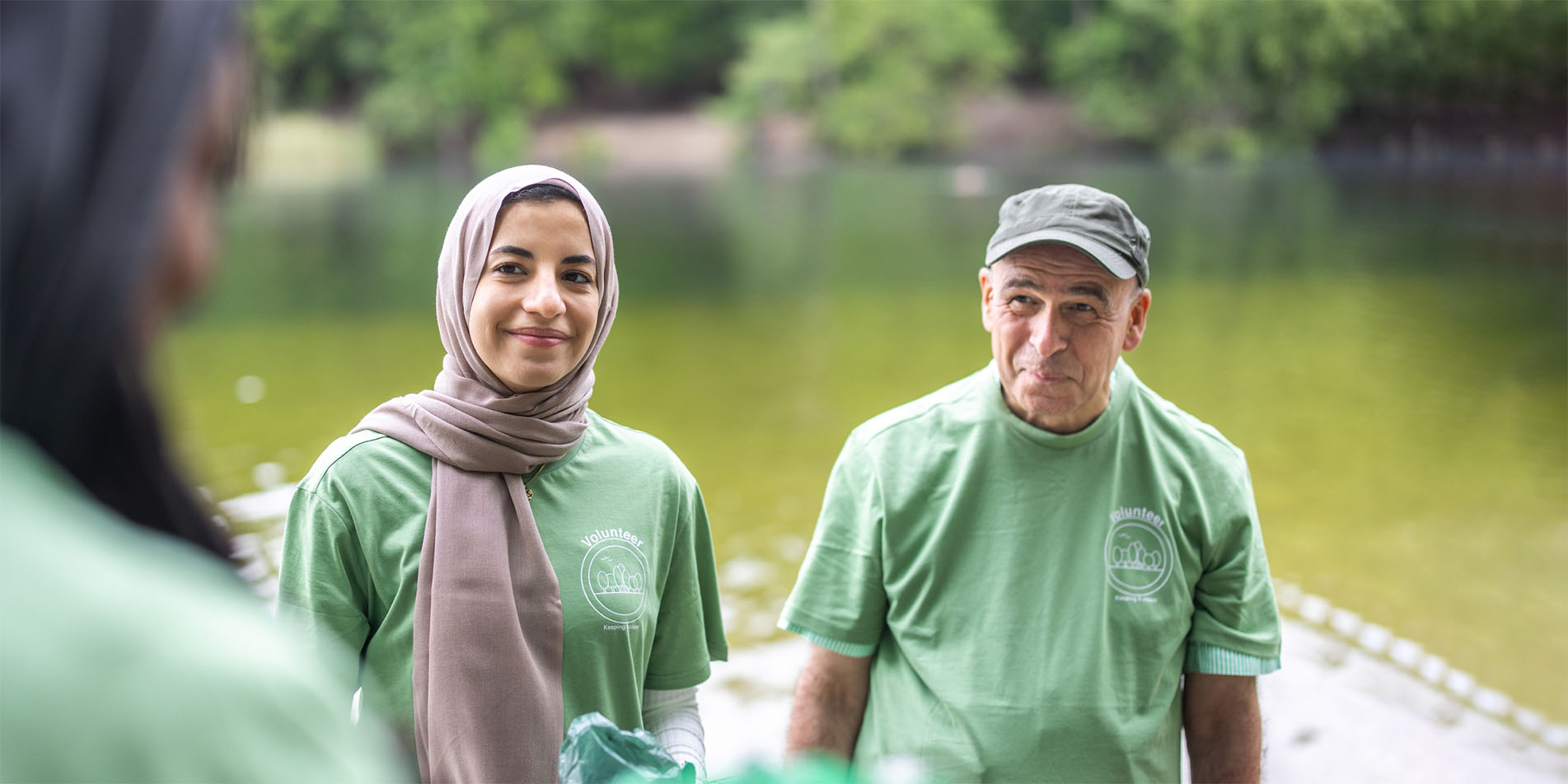How doing good is good for your health
Physical HealthArticle7 July 2023
The evidence shows that giving doesn’t just help the recipient – it’s good for the giver too. We take a look at how giving back can improve your wellbeing.
Philosophies and spiritual writings have advocated the benefits of altruism, or giving to others, for thousands of years. Now, advances in neuroscience and peer-reviewed scientific studies are confirming these age-old beliefs.
Developments in magnetic resonance imaging (MRIs)1 and positron emission tomography (PETs) mean we can now see the effect of different activities on the brain2. This greater level of understanding can help explain how helping other people affects us physically and mentally – and why it can be so good for us.
Helping others can set off dopamine, a neurotransmitter responsible for the sensation of reward or pleasure3. Kind acts can also trigger other pleasurable brain chemicals such as serotonin, which is responsible for elevating your mood, and oxytocin, which makes you feel connected to other people4.
Physical health benefits
But altruism doesn’t only trigger happy feelings. Giving back may be good for your physical health too.
For example, two studies suggest that spending money on others is good for cardiovascular health – which may be because generosity helps lower cortisol levels5. Of course, you don’t have to spend a cent to help others and reap the physical benefits of altruism. Giving your time to benefit someone else – such as looking after a friend’s children or pets, or doing an elderly relative’s shopping for them – could provide the same heart-protective results.
Psychological benefits of giving back
Evidence suggests that giving enhances a person’s general sense of wellbeing6. Studies of volunteers have shown that helping others can lead to a greater sense of happiness and decrease symptoms of depression. What’s more, being in the position to give had a stronger effect on mental health than being helped by others7.
Helping other people can also result in more positive behaviours and attitudes. For example, a study of young people who took part in helping activities found their altruistic behaviour led to more positive social interactions and a stronger sense of purpose. They were also less likely to get involved with risky practices such as substance abuse or underage drinking8.
Helping others who have similar problems can be psychologically beneficial, too. Research found that people in 12-step groups who help others in their recovery from addiction experience better self-awareness and improved social skills9.
Even just wishing others well can benefit your health. A study found that loving kindness meditation (where the meditator focuses on wishing others well) had the same benefits to wellbeing as undertaking a light exercise program.
Altruism and ageing positivity
There’s evidence that suggests stress can cause cells to age – so by extension, chronic stress can make our bodies age prematurely.7 Conversely, helping other people can activate neurotransmitters and hormones which can help alleviate stress. Because altruism can help decrease stress, it may also help protect us against ageing prematurely10.
A study found that older people who engage in positive behaviours such as volunteering contributed to them living longer than their peers11. Meanwhile in another study, older people who helped others have reported better physical health than those who didn’t.7
How to start giving back
- Choose something that’s meaningful for you. For example, if you’re passionate about the environment, consider becoming a Landcare volunteer or joining an environmental advocacy group. If you love a particular sport, share your enthusiasm for the game by coaching a local children’s team or volunteering with a local sports group.
- Find something that allows you to share your skills. Perhaps you’re an excellent cook, a green thumb, a whizz with a spreadsheet or great at fixing things. There’s no shortage of charitable and other volunteer organisations who could benefit from your skills, knowledge and expertise. So why not choose something that gets you to do what you love – and share your abilities with others?
- Connect with your local community. Volunteering and charitable work can connect you with others. While any act of giving can be good, finding a way to contribute to your community can help enhance your sense of belonging and make you feel connected to the people in your area.
When altruism oversteps the mark
It’s worth remembering that altruism is just one factor that may enhance your health and wellbeing. A healthy diet, adequate exercise and sleep, meaningful connections with others and avoiding stress are just as important.
Be sure that you when you care for others, you don’t neglect your own needs. Looking after others at the expense of your own health can undo the good that altruism does.7
It’s OK to take time out when you need, or to step back from helping if it’s causing too much stress.
To find out volunteering opportunities:
Seek Volunteer, volunteer.com.au
Go Volunteer, govolunteer.com.au
1 Y Zhu and P Garber, ‘MRI technology for behavioral and cognitive studies in macaques in vivo’, Fascinating Life Sciences, 19 November 2019.
2 J Ceccarini, H Liu, K Van Laere, ED Morris and CY Sander, ‘Methods for quantifying neurotransmitter dynamics in the living brain with PET imaging’, Frontiers in Physiology, V11, 2020.
3 LG Breuning, ‘The selfishness of altruism’, Psychology Today blog, 28 April 2016.
4 Cleveland Clinic, ‘Why giving is good for your health’, 7 December 2022.
5 AV Whillans, EW Dunn, GM Sandstrom, KM Madden, SS Dickerson, ‘Is spending money on others good for your heart?’, Health Psychology, Vol. 35, No. 6, 2016.
6 CE Schwartz, JB Meisenhelder, Y Ma and G Reed, ‘Altruistic social interest behaviors are associated with better mental health’, Psychosomatic Medicine, volume 65, 778-785, 2003.
7 S Post, ‘Altruism, happiness, and health: It’s good to be good’, International Journal of Behavioral Medicine Vol. 12, No. 2, 66–77, 2005.
8 CE Schwartz, ‘Helping others shows differential benefits on health and well-being for male and female teens’, Journal of Happiness Studies, 10, 431-448, 2009.
9 W McGovern, M Addison, R McGovern, ‘An exploration of the psycho-social benefits of providing sponsorship and supporting others in traditional 12 step, self-help group’, International Journal of Environmental Research and Public Health, March 2021.
10 SL Brown and RM Brown, ‘Connecting prosocial behavior to improved physical health: Contributions from the neurobiology of parenting’, Neuroscience & Biobehavioral Reviews, Volume 55, August 2015.
11 ELM Martins, LC Salamene, ALG Lucchetti and G Lucchetti, ‘The association of mental health with positive behaviours, attitudes and virtues in community-dwelling older adults: Results of a population-based study’, International Journal of Social Psychiatry, Vol. 68(2) 392–402, 2022.



